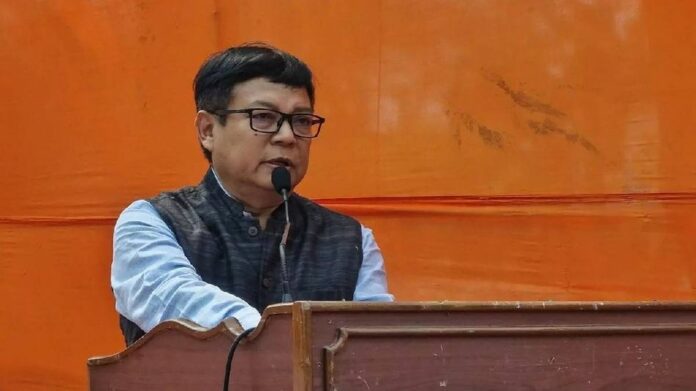Guwahati: Assam’s Leader of the Opposition, Debabrata Saikia, has written to the Chief Justice of Gauhati High Court, seeking the formation of a special bench to monitor the investigation into the death of legendary singer Zubeen Garg in Singapore last month.
In a detailed letter dated October 22, Saikia expressed serious concern over the dual investigations currently being carried out by different agencies, warning that overlapping mechanisms could compromise the integrity of the probe and create evidentiary conflicts.
The iconic Assamese singer passed away in Singapore on September 19, sparking statewide grief and protests. More than 60 FIRs have since been registered in Assam in connection with misinformation and demonstrations related to the case.
At present, two separate entities are probing the matter — a Special Investigation Team (SIT) formed under the Assam Police Act on September 24, and a one-man Commission of Inquiry headed by Justice Soumitra Saikia, constituted under the Commissions of Inquiry Act, 1952, on October 3.
Saikia argued that this dual framework raises “significant questions concerning constitutional propriety, institutional competence, and jurisdictional limitations,” while also creating the risk of duplicity in investigation.
Citing the Supreme Court’s ruling in Ram Krishna Dalmia v. Justice S.R. Tendolkar, he noted that commissions of inquiry lack judicial powers and cannot issue binding directions. The 24th Law Commission Report also affirmed that such commissions serve merely a fact-finding and recommendatory role.
The Congress leader further pointed out that the SIT’s jurisdiction is confined to domestic matters, rendering it powerless to conduct inquiries abroad, given that Garg’s death occurred in Singapore. He stressed that access to autopsy reports, hospital records, or witness statements would require cooperation through Mutual Legal Assistance Treaties (MLATs) or letters rogatory.
Raising concerns about unauthorised leaks of confidential investigation materials, Saikia said, “Multiple and conflicting reports relating to the ongoing investigation have been selectively and improperly leaked to the media, including materials of a confidential and personal character.” He maintained that such leaks have undermined the fairness and sanctity of the probe.
Referring to the Supreme Court’s recent observations in the Karur stampede case, Saikia stated that judicial monitoring is essential in cases where potential conflicts of interest may arise due to executive control over investigating bodies.
In his letter, Saikia made three key recommendations —
1. Withdrawal of the one-man commission notification.
2. Integration of the SIT within a unified structure to eliminate overlaps with the CID.
3. Constitution of a special bench of the Gauhati High Court to supervise the investigation.
He proposed that the special bench should monitor progress, ensure compliance with procedural safeguards under the Bharatiya Nagarik Suraksha Sanhita, 2023, coordinate international cooperation, and receive monthly progress reports.
Citing the precedent set in Vineet Narain v. Union of India, Saikia emphasised that judicial oversight would “eliminate multiplicity, prevent duplicity, and safeguard against procedural impropriety, ensuring that no accused escapes accountability due to investigative lapses or bias.”
The letter concluded with an appeal to the Chief Justice to review the matter and issue directions to the Assam government to ensure a fair, credible, and judicially supervised investigation into Zubeen Garg’s death.

